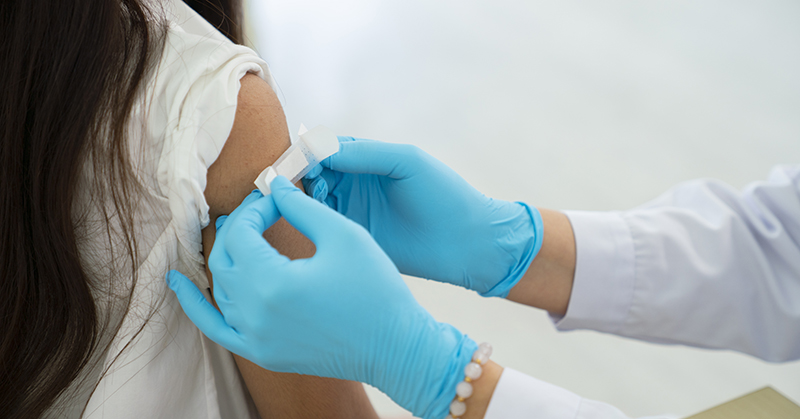
By late 2022, widespread COVID-19 vaccination of pregnant people likely halted a spike in the preterm birth rate that began at the start of the pandemic, suggests an analysis of State of California health data funded in part by the National Institutes of Health. The authors conclude that their findings underscore the need for pregnant people to keep current on COVID-19 vaccination as a hedge against future viral mutations that may lead to outbreaks.
The study was conducted by Florencia Torche, Ph.D., of Stanford University, and Jenna Nobles, Ph.D, of the University of Wisconsin-Madison. It appears in the Proceedings of the National Academy of Sciences. NIH funding was provided by the Eunice Kennedy Shriver National Institute of Child Health and Human Development.
Background
Previous studies have shown associations between COVID-19 during pregnancy and a higher risk for preterm birth and admission of newborns to the neonatal intensive care unit, the study authors wrote. Preterm birth—before 37 weeks of pregnancy—is the most common cause of infant death. Infants born preterm are at risk for cerebral palsy (a group of nervous system disorders that affect control of movement and posture), developmental delays, and vision and hearing problems.
To conduct the study, the researchers analyzed statewide data from California, which included information on the location of the birth facility, residential area of the people giving birth, and data on their prior births since 2014.
Results
For people giving birth in California from July 2020 to February 2023, those with COVID-19 at the time of delivery had an 8.7% probability of giving birth preterm, compared to 7.3% for those without COVID-19. Probabilities of very preterm birth (before 32 weeks of pregnancy) also increased among pregnant people with COVID-19.
The researchers also compared the probability of pregnant people with COVID-19 giving birth preterm to their probability of preterm delivery in a different birth when they were not infected with COVID-19 (mostly before the pandemic). When they did not have COVID-19, their probability of giving birth preterm was 7.3%, compared to 8.4% when they gave birth when they had COVID-19. Dr. Torche noted that comparing births to the same mother accounts for any unobserved characteristics of the mother that could potentially influence the effects of SARS-CoV-2 infection.
In another comparison of births to the same mother, the authors determined that maternal SARS-CoV-2 infection had the greatest effect on preterm birth in 2020, when the risk of preterm birth rose by more than 5 percentage points between July and November, from 6.9% to 12.2%. During 2021, when there were waves of infection caused by different variants, SARS-CoV-2 infection resulted in an increased probability of preterm birth by around 2 to 4 percentage points. During 2022, the impact of COVID-19 infection on preterm birth disappeared. The authors attribute the waning impact of COVID-19 to increased COVID-19 vaccination rates, improved treatments for COVID-19, natural immunity from prior exposure to SARS-CoV-2, and the spread of the Omicron variant, which caused less severe COVID-19 among pregnant people than previous variants.
The authors also classified vaccination rates according to zip code. Before May 2021 (when vaccines were first made available) the effect of COVID-19 on preterm birth was similar across zip codes. After vaccines were made available, the effect of COVID-19 on excess risk of preterm birth declined sharply in those zip codes where vaccination was highest (a vaccination rate of 70% or higher). In zip codes where vaccination rates were lowest, the higher risk of preterm birth associated with SARS-CoV-2 infection remained significantly elevated into 2022.
Significance
The similarity in the excess risk of preterm birth among mothers with COVID-19 in all zip codes before the introduction of vaccines and the later drop in the excess risk of preterm birth in areas where vaccination rates were high suggests that vaccination was largely responsible for the drop, the authors wrote. They added that their findings underscore the importance of keeping COVID-19 vaccinations current to guard against future resurgences of the virus.
“Unfortunately, even if the adverse impact of COVID-19 infection on preterm birth has plummeted to zero, this adverse impact is likely to emerge again as the virus continues to evolve and mutate and as vaccine-driven immunity wanes,” Dr. Torche said.
Reference
Torche, F, and Nobles, J. Vaccination, immunity, and the changing impact of COVID-19 on infant health. PNAS. 2023.
 BACK TO TOP
BACK TO TOP